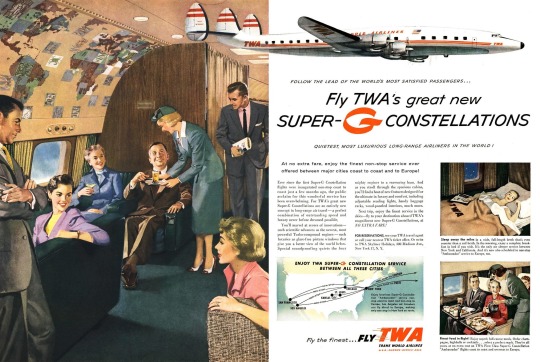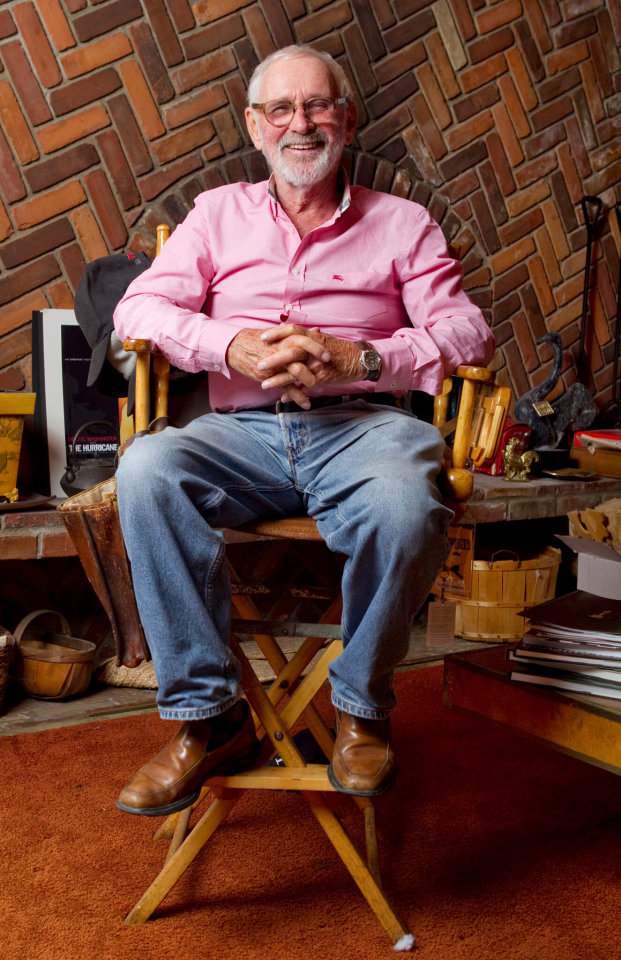#picture windows
Text







Atelier Lapidus, Sweden - Arrhov Frick
#Arrhov Frick#architecture#design#building#modern architecture#interiors#minimal#house#concrete#house design#cool architecture#beautiful design#construction#forest#nature#scandi#sweden#timber#picture windows#bedroom
118 notes
·
View notes
Photo

Trans World Airlines, 1955
#TWA#ad#1955#Super-G Constellation#aircraft#advertisement#mid-century#illustration#Super G#Constellations#airplane#golden age of flying#travel#Europe#flights#luxurious#airliners#Ambassador service#picture windows#luxury#1950s#midcentury#advertising
183 notes
·
View notes
Text

#someday#house#bath#calmness#peaceful#brightness#picture windows#bathroom#sea#bathtub#ocean#water#bright#home#casa#baño#calma#tranquilidad#paz#luminoso#ventanal#cuarto de baño#mar#bañera#océano#luz
3 notes
·
View notes
Text

Townscape: Commercial building with grain elevator in the distance, Oakesdale, Washington, 2022.
#townscape#buildings#picture windows#grain elevator#oakesdale#palouse#whitman county#washington state#2022#photographers on tumblr#pnw#pacific northwest
3 notes
·
View notes
Photo

Expansive - Sun Room
Sunroom - huge traditional light wood floor sunroom idea with no fireplace and a standard ceiling
#crown molding#sun room#picture windows#ceramic tile floors#expansive#traditional living room#transitional living room
3 notes
·
View notes
Text
Norman Jewison, 97, Dies; Directed ‘In the Heat of the Night’ and ‘Moonstruck’
His genre-spanning movies — dramas, comedies and musicals, like “Fiddler on the Roof” — were magnets for Oscar nods, but he was best known for socially conscious films.

Norman Jewison in his production company’s offices in Toronto in 2011. His films, many of them both popular and critical successes, earned many Oscars and dozens of nominations.Credit...Chris Young for The New York Times
By Dennis Lim
Jan. 22, 2024
Norman Jewison, whose broad range as a filmmaker was reflected in the three movies that earned him Academy Award nominations for best director — the socially conscious drama “In the Heat of the Night,” the big-budget musical “Fiddler on the Roof” and the romantic comedy “Moonstruck” — died on Saturday at his home. He was 97.
His death was confirmed by a spokesman for the family, Jeff Sanderson. He declined to specify where Mr. Jewison lived, saying that the family requested privacy.
Mr. Jewison, whose career began in Canadian television and spanned more than 50 years, was, like his close friend Sidney Lumet and a select few other directors, best known for making films that addressed social issues. The most celebrated of those was “In the Heat of the Night” (1967), one of his earliest features and his first Oscar-winning film.
A story of racial tensions in the American South filtered through a murder mystery that brings together a Black Philadelphia detective (Sidney Poitier) and a white Mississippi police chief (Rod Steiger), “In the Heat of the Night” could not have been more timely: It opened weeks after racial violence had erupted in Detroit and Newark. It went on to win five Academy Awards, including best picture and best actor, for Mr. Steiger.
Mr. Poitier was among the many actors who had fond memories of working with Mr. Jewison. “He gives his actors room and keeps them as calm as he can, because it’s easier to speak with them when they’re calm,” he told The New York Times in 2011. “A director has to keep the actors on their toes while the camera’s running, but when the scene is done, they should be relaxing, nothing on their minds. There can’t be a constant level of seriousness. And with Norman, there’s always a lot of laughter.”
Mr. Jewison lost the best director award for “In the Heat of the Night” to Mike Nichols, who won for “The Graduate,” and he never did win an Oscar for directing. But his films, and the actors in them, garnered many Oscars and 46 nominations.
Mr. Jewison once said, “The movies that address civil rights and social justice are the ones that are dearest to me.” He attributed his predilection for such movies to his lifelong sense of being an outsider.
Norman Frederick Jewison was born on July 21, 1926, in Toronto, where his parents, Dorothy (Weaver) and Percy Jewison, ran a dry-goods store below their apartment. From a childhood love of movies, radio shows and vaudeville, he developed an interest in writing and performing.
The family was Methodist, but because of his surname, young Norman was teased and bullied by schoolmates who assumed he was Jewish. A later formative brush with bigotry came while he was on a hitchhiking trip through the segregated American South in the 1940s. On the outskirts of Memphis, he was chastised by a driver for sitting in the back of a bus with the Black passengers.
“Traveling in the South,” Mr. Jewison wrote in an autobiography, “This Terrible Business Has Been Good to Me” (2004), “I understood the meaning of being victimized even more than I had as a boy.”
After World War II, during which he served in the Canadian Navy, he attended Victoria College at the University of Toronto, where he directed and acted in student theater productions. He graduated with a bachelor’s degree in liberal arts in 1949.
Like many filmmakers of his generation, Mr. Jewison came up through the ranks of television. He worked as a writer and actor for the BBC in London and as a director for the Canadian Broadcasting Corporation in Toronto before landing at CBS in New York, where he directed specials starring Judy Garland, Harry Belafonte and Danny Kaye.
He directed his first feature film in 1962, for Universal Studios: “40 Pounds of Trouble,” a comedy based on a Damon Runyon story that starred Tony Curtis. Under contract to Universal, he was paired with the studio’s biggest star at the time, Doris Day, for two more comedies, “The Thrill of It All” (1963) and “Send Me No Flowers” (1964).
Eager to prove his range, Mr. Jewison jumped at the chance to direct “The Cincinnati Kid” (1965), a drama with Steve McQueen as a Depression-era gambler, when the original director, Sam Peckinpah, was fired a few days into the shoot.
Mr. Jewison’s other ’60s films include “The Russians Are Coming, the Russians Are Coming” (1966), a satire of Cold War paranoia that was his first film to receive an Oscar nomination for best picture (although he himself was not nominated for best director), and “The Thomas Crown Affair” (1968), a romantic crime caper starring Mr. McQueen and Faye Dunaway. But the movie that sealed his reputation was “In the Heat of the Night,” which beat two other era-defining films, “Bonnie and Clyde” and “The Graduate,” for best picture honors.
Mr. Jewison took pride in the movie’s success, which suggested to him a widespread receptiveness to its liberal message. But with the United States mired in Vietnam and the assassinations of the Rev. Dr. Martin Luther King Jr. and Robert F. Kennedy, he was also growing disillusioned with the political mood in America. (The Oscar ceremony at which “In the Heat of the Night” was named best picture was delayed two days because of Dr. King’s funeral.)
After finishing the 1969 comedy “Gaily, Gaily,” Mr. Jewison moved his family to London and worked abroad for several years. Shot largely in Eastern Europe, “Fiddler on the Roof” (1971) — which Mr. Jewison claimed he had been asked to direct in part because executives at United Artists, like the bullies at school, thought he was Jewish — received Oscar nominations for best picture and best director. He followed it with another screen version of a popular Broadway musical, “Jesus Christ Superstar” (1973), based on the Andrew Lloyd Webber rock opera and filmed in Israel.
Returning to North America, Mr. Jewison bought a cattle farm outside Toronto and divided his time between Canada and California from the late ’70s onward. He scored one of his biggest hits in 1987 with “Moonstruck,” a commercial and critical success that earned Cher an Oscar and put Nicolas Cage on the map as a leading man.
But throughout his career Mr. Jewison was repeatedly drawn to more serious fare, in movies like “F.I.S.T.” (1978), a labor-union drama that starred Sylvester Stallone; “In Country” (1989), about the daughter of a Vietnam War casualty; and his last film, “The Statement” (2003), the story of a former Nazi collaborator, played by Michael Caine.
Well into the post-civil-rights era, Mr. Jewison remained interested in race, specifically racial injustice. In 1984, he directed “A Soldier’s Story,” an adaptation of Charles Fuller’s Pulitzer Prize-winning “A Soldier’s Play,” which, like “In the Heat of the Night,” told the story of a Deep South murder investigation, this time on an Army base in World War II-era Louisiana. The movie was critically praised and earned Mr. Jewison yet another best picture nomination.
But when it was announced a few years later that Mr. Jewison would be directing a film about the life of Malcolm X, he encountered resistance. The filmmaker Spike Lee, who had long wanted to make such a film himself, was the most outspoken critic of the choice, maintaining that a white director could not do justice to the story of a major Black political activist.
Mr. Jewison eventually left the project, although he denied that his departure was in response to the protest. Mr. Lee himself went on to direct “Malcolm X,” which was released in 1992, and later said that Mr. Jewison “was happy I got to do the film.”
In 1999, Mr. Jewison directed “The Hurricane,” about Rubin Carter, the African American boxer whose career was cut short by a murder conviction, and who was imprisoned for nearly 20 years before the charges against him were dismissed. Denzel Washington (who had one of his first film roles in “A Soldier’s Story,” and who had also starred in “Malcolm X”) received rave reviews and an Oscar nomination for his performance in the title role (Stephen Holden of The Times called it “astonishing”). But the film was criticized by many for taking liberties in its depiction of Mr. Carter’s life and legal battles.
Beginning in the late 1960s, Mr. Jewison served as producer on his own movies. He also produced the work of other directors, including “The Landlord” (1970), the directing debut of his regular editor, Hal Ashby (who won an Oscar for his work on “In the Heat of the Night”).
Mr. Jewison married Margaret Ann Dixon, a model, in 1953. She died in 2004. He married Lynne St. David in 2010. He is survived by two sons from his first marriage, Kevin and Michael; a daughter, Jenny Snyder; and five grandchildren.
In 1988, Mr. Jewison founded the Canadian Film Center, a film school and institution in Toronto. He received the Irving G. Thalberg Memorial Award for his body of work at the 1999 Academy Awards and a lifetime achievement award from the Directors Guild of America in 2010. In 2011, the Film Society of Lincoln Center in New York presented a 15-film retrospective of his work.
“For me, films are about ideas,” Mr. Jewison told The Times on the occasion of the retrospective. “Every director should ask himself, ‘Why am I making this picture?’ And if you can’t answer that, you shouldn’t make it.”
Alex Traub contributed reporting.
#Norman Jewison#The New York Times#Obituary#The Statement#Dinner with Friends#The 20th Century: Funny Is Money#The Hurricane#Bogus#Picture Windows#Only You#Other People's Money#In Country#Moonstruck#Agnes of God#A Soldier's Story#Best Friends#And Justice for All#F.I.S.T.#Rollerball#Jesus Christ Superstar#Fiddler on the Roof#Gaily Gaily#The Thomas Crown Affair#In the Heat of the Night#The Russians Are Coming the Russians Are Coming#The Cincinnati Kid#The Art of Love#Send Me No Flowers#The Thrill of It All#40 Pounds of Trouble
0 notes
Photo

Exterior - Contemporary Exterior
Inspiration for a large, multicolored, contemporary, two-story remodel with a flat roof
0 notes
Text
Window Styles That Can Add Value to Your Home
Window Styles
Most homeowners overlook the importance of upgrading their windows to increase home value.
Not only do new windows improve the aesthetics of your property, but they also provide improved energy efficiency and better security.
With the plethora of different types of windows available, it can be daunting to pick the right ones that can add value to your home.
In this blog post, we’ll…

View On WordPress
#Casement Windows#Double-Hung Windows#Picture Windows#Sliding Windows#Window Company#Window Replacement#Window Styles
0 notes
Photo

Concrete Slab Patio in Oklahoma City
photograph of a medium-sized concrete patio in the backyard with an addition to the roof
#medium wood double coulmns#historic#picture windows#grass in backyard#mccaleb#brown double window doors#medium wood gable brackets
0 notes
Text
Pool Natural in DC Metro

Example of a large classic backyard stone and rectangular natural pool design
#picture windows#pool lighting#indoor-outdoor#outdoor dining furniture#outdoor gas fire pit#brick exterior home#backyard retreat
0 notes
Photo

Patio Tile Miami
Example of a mid-sized trendy backyard tile patio design with a roof extension
#impact windows#high end doors#picture windows#contemporary design#door with glass panel#siw windows and doors
0 notes
Text
Patio Tile Miami

Example of a mid-sized trendy backyard tile patio design with a roof extension
#contemporary design#door with glass panel#high end doors#impact windows#picture windows#siw windows and doors
0 notes
Text
Patio Tile Miami

Example of a mid-sized trendy backyard tile patio design with a roof extension
#contemporary design#door with glass panel#high end doors#impact windows#picture windows#siw windows and doors
0 notes
Text
Patio Tile Miami

Example of a mid-sized trendy backyard tile patio design with a roof extension
#contemporary design#door with glass panel#high end doors#impact windows#picture windows#siw windows and doors
1 note
·
View note
Text
Patio Tile Miami

Example of a mid-sized trendy backyard tile patio design with a roof extension
#contemporary design#door with glass panel#high end doors#impact windows#picture windows#siw windows and doors
0 notes
Text
Patio Tile Miami

Example of a mid-sized trendy backyard tile patio design with a roof extension
#contemporary design#door with glass panel#high end doors#impact windows#picture windows#siw windows and doors
0 notes